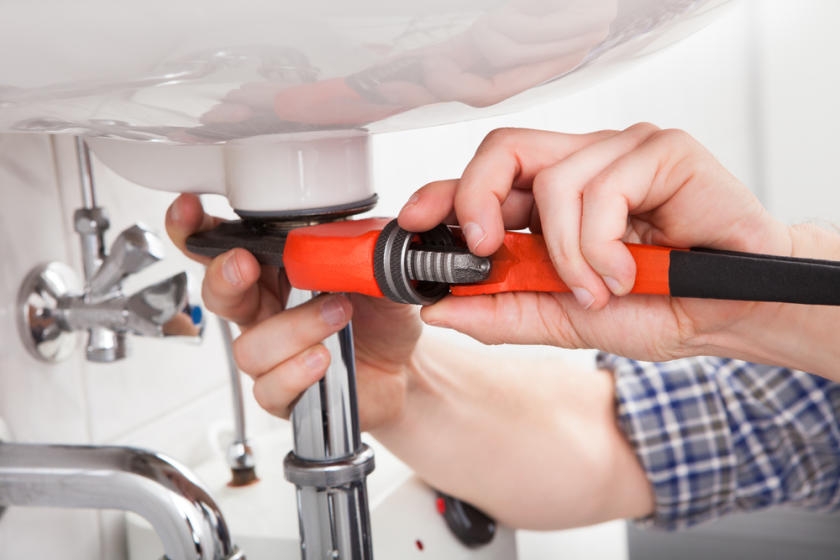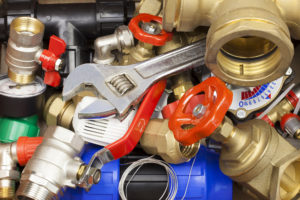Emergency Tips: What to Do Until Help Arrives
Request EstimateAny individual has got his or her own ideas on the subject of What to Do While Waiting for an Emergency Plumber.

Pipes emergency situations can strike at any moment, triggering anxiety and potential damages to your home. Whether it's a burst pipe, a clogged up drain, or a dripping tap, recognizing how to manage the scenario until a specialist plumbing gets here can save you from further issues. This write-up provides crucial emergency plumbing suggestions to assist you mitigate damages and gain back control throughout a plumbing crisis.
Shut off the Supply Of Water
The primary step in any kind of plumbing emergency is to shut off the water supply. For localized issues, such as a dripping faucet or commode, switch off the shutoff near the component. When it comes to a significant leakage or ruptured pipe, locate your home's main water shut-off valve and turn it off instantly. Understanding the area of these shutoffs ahead of time can conserve beneficial time throughout an emergency situation.
Shut down Your Hot Water Heater
In particular emergency situations, such as a ruptured pipeline, it's important to turn off your water heater. This avoids overheating or damage to the device when water quits flowing. Turn off the power supply to the water heater (electrical or gas) and allow it cool to stay clear of potential hazards.
Momentarily Quit a Ruptured Pipe
A burst pipe can bring about substantial water damages in mins. To reduce the issue:
Call a professional plumbing technician right away to address the trouble permanently.
Have an Emergency Situation Plumbing Package
Prepare a fundamental pipes emergency package to manage minor problems effectively. Your package needs to include:
Having these tools handy can make a significant difference in your capacity to manage emergency situations.
Unclog Drains Securely.
A clogged drain can be an irritating and untidy concern. Here's just how to tackle it:.
If these techniques do not work, prevent utilizing too much force, as it may aggravate the clog.
Manage Overflowing Toilets.
An overflowing bathroom can create immediate mayhem. Right here's what you need to do:.
Address Little Leaks with Short-term Repairs.
Little leaks can quickly become significant problems if left unattended. Utilize these short-term repairs up until professional help arrives:.
While these fixes aren't permanent, they can help minimize water loss and damage.
Deal With Frozen Pipeline Thoroughly.
In chillier climates, frozen pipes are a common emergency. If you suspect an icy pipeline:.
Know When to Call a Professional.
While quick fixes can help momentarily, particular pipes concerns call for instant expert attention. Call a plumbing if:.
Quickly getting in touch with a specialist guarantees the issue is settled appropriately and avoids more issues.
Avoid Further Damages.
Taking quick activity to lessen damage can conserve you time and money in the long run. Right here's how:.
Final thought.
Plumbing emergency situations can be overwhelming, however with the right understanding and tools, you can handle the situation successfully until assistance arrives. By switching off the water system, addressing small leakages, and making use of short-term solutions, you can reduce damages and keep your home safe. Bear in mind, these suggestions are short-lived solutions; constantly consult a certified plumber to deal with the origin of the problem. Preparation and fast thinking are your finest allies in any kind of plumbing emergency.
Expert Tips for Emergency Plumbing Repairs
Plumbing emergencies can be incredibly stressful and inconvenient. Whether it’s a burst pipe, a clogged drain, or a leaky faucet, these common plumbing emergencies need immediate attention to prevent further damage to your home. But before you panic, it’s important to understand the basics of plumbing repairs and the steps you can take to address these emergencies. In this article, we will share some expert tips to help you navigate through these situations and minimize potential water damage.
Identifying Common Plumbing Emergencies
Leaky pipes and faucets Clogged drains and toilets Burst pipes Low water pressure Water heater problems Essential Tools for Plumbing Repairs
Plunger: Useful for unclogging toilets and drains Adjustable wrench: Needed for tightening or loosening nuts and bolts Pipe wrench: Ideal for gripping and turning pipes Tape measure: Necessary for accurate pipe measurements Plumber’s tape: Helps create watertight seals Understanding Emergency Plumbing Services
Emergency plumbing services are designed to provide immediate assistance for unexpected plumbing issues that can cause significant damage to your home, business, or health. These services are typically available 24/7 and are staffed by experienced plumbers who can quickly diagnose and repair a wide range of plumbing problems.
When a plumbing emergency strikes, time is of the essence. Whether it’s a burst pipe flooding your basement or a gas leak posing a serious risk, emergency plumbing services ensure that help is just a phone call away. These professionals are equipped with the tools and expertise to handle any situation, minimizing damage and restoring your plumbing system to proper working order.
What Constitutes a Plumbing Emergency?
Burst pipes or water supply lines: These can cause extensive water damage and need immediate repair to prevent flooding. Gas leaks or suspected gas leaks: Gas leaks are extremely dangerous and require prompt attention to avoid potential explosions or health hazards. Sewer backups or overflows: These can lead to unsanitary conditions and significant property damage. Clogged drains or toilets causing water to overflow: Overflowing water can damage floors, walls, and other structures. Leaks or water damage causing structural damage: Persistent leaks can weaken the structural integrity of your home or business. No hot water or heating: A lack of hot water can be more than an inconvenience, especially in colder months. Common Causes of Plumbing Emergencies
Aging or corroded pipes: Over time, pipes can deteriorate, leading to leaks or bursts. Improperly installed or maintained plumbing fixtures: Faulty installations or lack of maintenance can result in unexpected failures. Tree roots or other debris infiltrating your sewer line: Roots can grow into pipes, causing blockages and backups. Frozen pipes or water supply lines: In colder climates, pipes can freeze and burst, leading to significant water damage. High water pressure or sudden changes in water pressure: Excessive pressure can strain pipes and fixtures, causing them to fail. Natural disasters such as floods or earthquakes: These events can disrupt your plumbing system and cause severe damage. Steps to Minimize Water Damage
Locate the water shut-off valve: Knowing where the valve is can help you quickly cut off the water supply to the affected area. Turn off the water heater: If there’s a risk of water coming into contact with the heating element, make sure to turn off the water heater to avoid potential accidents. Open faucets and drain pipes: By opening faucets and drain pipes, you can relieve pressure and empty any standing water. Collect and contain water: Use towels, buckets, or bins to collect water and prevent it from spreading to other areas of your home. https://leecountyplumbingandwellservice.com/expert-tips-for-emergency-plumbing-repairs/

Do you appreciate reading up on Expert Tips for Emergency Plumbing Repairs? Put a remark further down. We would be pleased to hear your feelings about this page. Hoping that you come back again soon. Enjoyed our post? Please share it. Help other people locate it. Thanks so much for going through it.
Website